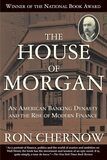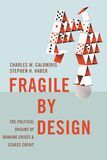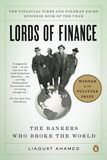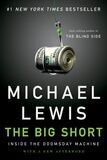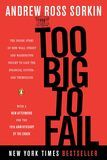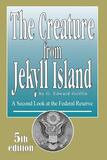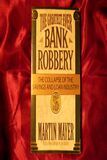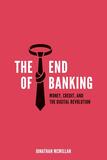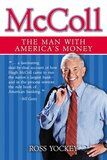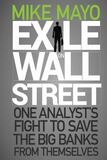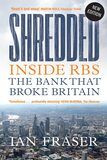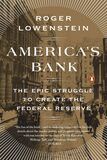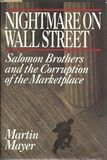What Are Banking Books?
The banking industry is extremely huge and a very complicated field in any economy. There are many rules, regulations, topics, disciplines, and banking concepts that one needs to learn in order to gain more knowledge in this field.
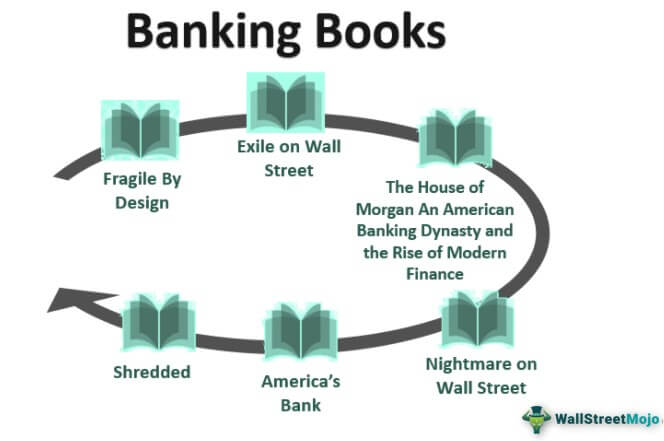
Many books provide comprehensive knowledge about the history and development of the banking industry over the years, the changing banking landscape, and the advancement of the modern banking system. It is interesting to learn more about this industry through these books to stay updated about the current condition and future prospects of banking.
Banking Books Explained
Banking books are a medium for gaining valuable information about the banking industry in all countries. They provide insights into the history and ever-changing landscape of the sector due to advancements in technology and change in rules, regulations, and practices.
Numerous books are available in the market that deal with a wide range of topics related to the field. They give information stating how some particularly famous banks developed and reached the level of what they are today. They give details about the success stories of some individuals or groups of people inspired by various circumstances to make banking operations a huge success.
The finance and investment banking books also give details about the failures and problems that the industry has been facing and the solutions designed to handle them. They highlight the reasons of such problems, how to identify them on time, and frame strategic solutions to avoid or minimize the risk of a sudden crisis.
The banking system is the backbone of any financial system. Thus, it is important to learn about it and understand the various development methods and procedures to manage any unforeseen situations.
List Of Top 13 Banking Books
The banking industry is the backbone of the financial market in every economy. Below is the list of the top 13 finance and investment banking books to read in 2022:
- The House of Morgan - An American Banking Dynasty and the Rise of Modern Finance ( Get This book )
- Fragile By Design: The Political Origins of Banking Crises & Scarce Credit( Get this book )
- Lords of Finance: The Bankers Who Broke the World ( Get this book )
- The Big Short: Inside the Doomsday Machine ( Get this book )
- Too Big to Fail ( Get this book )
- The Creature from Jekyll Island ( Get this book )
- The Greatest Ever Bank Robbery ( Get this book )
- The End of Banking ( Get this book )
- McColl: The Man with America's Money ( Get this book )
- Exile on Wall Street: One Analyst′s Fight to Save the Big Banks from Themselves ( Get this book )
- Shredded: Inside RBS, the Bank That Broke Britain ( Get this book )
- America's Bank: The Epic Struggle to Create the Federal Reserve ( Get this book )
- Nightmare on Wall Street: Solomon Brothers and the Corruption of the Marketplace ( Get this book )
Let us discuss each banking book in detail, along with its key takeaways and reviews from the best banking books.
#1 - The House of Morgan An American Banking Dynasty and the Rise of Modern Finance
Author - By Ron Chernow
Introduction
This book is among the best banking books and is related to the most aspiring history of American finance, which had been considered a disaster about 20 years or two decades back and is not considered a classic example for the rest of the globe. Starting from J.P. Morgan and covering the financial crises of the year 1987. It has been regarded as a masterpiece of financial history by the national book awards of the 20th century as the 100 Best Nonfiction book of the 20th by the Modern Library ‘The House of Morgan.’ It is an extraordinary institution, and so are the men who run the same.
These men include Franklin Roosevelt, Charles Lindbergh, Henry Ford, Winston Churchill, and Nancy Astor. The author explains the great men behind this institution's 150 years of success, its men, and related historical events.
Summary
This book is among the top rated banking awareness books that covers a remarkable history of the great men behind the successful history of J.P. Morgan as an institution. With this book's help, the author has brought together all the moments to life by creating stress and anxiety in this epic novel. He describes the life of these men at the bank, the institution's history, and the flow of world finance history deeply.
Best Takeaways
The best takeaway from this book is the experience of the best men in the financial industry at work. Their experience includes their drawbacks or failures, along with their success stories. Success stories of successful individuals are great motivation. We must make them our idols to follow in their footsteps.
#2 - Fragile By Design: The Political Origins of Banking Crises & Scarce Credit
Author - By Charles W. Calomiris, Stephen H. Haber
Introduction
The author of this edition clearly stated why some countries have bad and unstable banking systems. However, some are very stable with the same. For example, The USA had 12 banking crises in 1840, whereas Canada was stable. However, a few economies, such as Brazil and Mexico, have only been prone to crises and increased their credits to business enterprises and households.
He has very closely monitored the banking history of countries of the United States of America, the United Kingdom, Brazil, Mexico, and Canada. He explains the difference between accidents caused due to unforeseen circumstances and fluctuation resulting from a complex bargain. He explains the details of a well-started banking system and the control of the regulators on the same.
Summary
Banking crises and scarce credits are not accidents caused by unforeseen circumstances. They are the after-effects of various bargains between bankers, politicians, shareholders of the bank, depositors, taxpayers, and debtors. A banking system can be fine only on the capability of the political institutions and to help the bankers maintain and limit the coalitions of different groups influencing the economy.
Best Takeaways
This book gives you a view of the entire financial system of an economy and how various groups of people have dominated it. The author confirms that the banking crises are rather avoidable than manageable , which makes it a very good read among the banking awareness books.
#3 - Lords of Finance: The Bankers Who Broke the World
by Liaquat Ahamed
The book is one of the finance and banking books, and focuses on the then heads of the four central banks – the US, Britain, France, and Germany, and narrates how they failed miserably, resulting in the Great Depression of 1929.
Book Review
This book is a real-life biography of four central bank heads – Benjamin Strong (Federal Reserve), Montagu Norman (Bank of England), Émile Moreau (Banque de France), and Hjalmar Schacht (Reichsbank). It explains how each of the central bank heads pursued different paths to recovery after the 1st World War, but none of them was able to find the right path. It is an exceptionally well-written book, and you can't wait to see what happens next. Although it is not a textbook, the book provides enough details about some advanced finance topics, such as international lending, the gold standard, and devaluation of the currency.
Best Takeaways
- It is an excellent narrative of one of the worst economic turmoil witnessed in human history – The Great Depression of 1929.
- It is a meticulously curated account of four of the most influential persons in the world and their actions during the financial crisis.
#4 - The Big Short: Inside the Doomsday Machine
by Michael Lewis
The book narrates the story of four separate investment groups who successfully predicted the credit and housing bubble fiasco well before anyone else making is one of the most demanded finance and banking books in the market.
Book Review
This book narrates the 2007-08 financial crisis through the actions of four investment firms – Scion Capital, FrontPoint Partners LLC, Cornwall Capital, and Deutsche Bank. It discusses the root causes of the crisis in great detail and how some financiers could anticipate the collapse well in advance. In addition, the author has honestly stated how the combination of corruption, arrogance, incompetence, and a law-bending attitude resulted in the subprime mortgage crisis. If you are interested in understanding how exactly the 2008 economic meltdown took place, that too in plain English, then this is the book for you.
Best Takeaways
- It is undoubtedly one of the best (if not the best) accounts of the 2007-08 financial crisis.
- It is easy to read and perfectly understandable even for people without advanced degrees in finance.
#5 - Too Big to Fail
The Inside Story of How Wall Street and Washington Fought to Save the Financial System from Crisis — and Themselves
by Andrew Ross Sorkin
This New York Times bestseller book is a moment-by-moment account of how the subprime mortgage crisis of 2007-08 unfolded to become one of the worst economic crises of all time.
Book Review
Although the author hasn't gone deep into the technical details, the dramatic narration of the events keeps you glued to the book. You can feel the uncertainty and seriousness of the decisions made daily to avert the financial meltdown. Like "The Big Short," this book also suggests that some people anticipated the economic downturn well before most others. It also hints that people in control of billions of dollars are not as smart as their fat paychecks suggest but are just as confused as the rest of us.
Best Takeaways
- It gives a great insight into the events on WallStreet leading up to the economic downturn.
- It is an interesting read for people interested in the subprime mortgage crisis.
#6 - The Creature from Jekyll Island
A Second Look at the Federal Reserve
by G. Edward Griffin
The book's title refers to the Federal Reserve's founding at a secret meeting at Jekyll Island, Georgia, in 1910. The book explains the workings of the Federal Reserve.
Book Review
This book is an easy-to-read critical review of present-day centralized banking. The research work has been done meticulously with many references and links that none of the bankers can afford to disapprove. This book will open your eyes to what is happening around you and help you realize that the central banking system is a massive scam. Furthermore, it reveals how many psychopathic bankers are wreaking havoc upon the entire world. This text can make you angry and emotionally charged.
Best Takeaways
- It gives a great insight into the events that led to the planning and establishment of the Federal Reserve.
- It narrates how some unscrupulous bankers enticed the politicians and ended up taking control of the world economy.
#7 - The Greatest Ever Bank Robbery
The Collapse Of The Savings And Loan Industry
by Martin Mayer
This book tells the story of savings and loan thefts in the 1980s and 1990s.
Book Review
This book is a crude illustration of how some individual miscreants committed these deliberate frauds on the back of negligent and incompetent legislation, which was extremely easy to manipulate. It states that the government was equally responsible for letting these happen, resulting in massive losses. The book provides a set of cases that clearly shows how the politicians colluded with some sociopathic narcissistic private actors to significantly dent the entire banking system significantly. In short, it is a probing narrative that critically reviews the fiasco that left the banking system dilapidated.
Best Takeaways
- It is a well-constructed account of the events that drove the savings and loan thefts.
- It is a must-read for anyone as it provides a real perspective on the actual workings of the banking system.
#8 - The End of Banking
Money, Credit, and the Digital Revolution
by Jonathan McMillan
The book cuts through the complex workings of the modern financial system and touches upon the digital revolution to explain how it can mark the end of banking.
Book Review
If you are interested in looking behind the scenes at banking operations, then you should pick this book, and you will not be disappointed. The authors have analyzed the banking system with some knowledge and passion. Thus, the book's narration is very simple and easy to comprehend. The book's first part discusses the balanced relationship between the government and the banking system that existed in the industrial age. The second part clarifies how the digital revolution unsettled the balance, and the rise of shadow banking culminated in the financial crisis of 2007-08. Finally, the third part explains how the digital revolution destabilized the efficacy of the current banking system and left it redundant.
Best Takeaways
- It discusses the fundamental financial techniques followed by all banking systems.
- It provides a plain and easy-to-get account of the shadow banking system, which can enlighten many readers.
#9 - McColl: The Man with America's Money
by Ross Yockey, L. Beth Yockey
The book is an exciting biography of Hugh McColl, a fourth-generation banker and the former CEO of Bank of America. It tells the story of how McColl created an entire banking empire.
Book Review
McColl is the man who is credited for creating the first national bank when NationsBank acquired the San Francisco-based Bank of America in April 1998. This book is an authorized biography that presents an account of the rise of McColl to become the leader of a large banking empire. If you want to know what happens on WallStreet and various banks along with internal politics, this is the right book for you.
Best Takeaways
- The book primarily lauds the achievements of Hugh McColl and gives a great insight into his professional life.
#10 - Exile on Wall Street: One Analyst′s Fight to Save the Big Banks from Themselves
Author - By Mike Mayo
Introduction
This edition is a must-read for audiences interested in business and finance, the future of banking, the root cause of the financial meltdown, and US capitalism. This book is an award-winning book with the details of one of the biggest financial and political crises of its time. In addition, this book covers six financial institutions and analyzes their banks, along with protesting against them for their awful practices for the last two decades.
The author has explained the practices laid down to weaken the banking sector and capitalism. He uncovers the real inner workings of big banks and shows how it has affected Wall Street, which makes it as bad as it was just before the last pre-crash. This book is not a textbook. However, it is still very informative for students wanting to pursue their career in the financial sector and others interested in the same business.
Summary
This efficiently highlights the author's bad practices in the banking sector, giving us an example of 6 big banks and institutions on Wall Street. He fights against the truth of power used in some large banks, highlighting his scars and his escape and survival of the challenging status to be credited by some of the few who saw the crises hitting the economy. He also highlights a few holes that still exist in the system. To sum it up, he also offers practical solutions
Best Takeaways
The entire history of the banking industry is narrated in this book. The author has generously displayed the open loopholes of the crises that still need to be closed by the system leading us to another crisis. However, he has also offered us practical solutions to help the system get better and healthier.
#11 - Shredded: Inside RBS, the Bank That Broke Britain
Author - By Ian Fraser
Introduction
From being one of the world's biggest banks to trying to regain the public's trust, Shredded has the entire story of RBS, which is the Royal Bank of Scotland. One of the biggest banks in the UK, having assets worth $3 trillion and more than 2,00,000 employees globally, was a name causing antagonism and antipathy against the former CEO of the bank, Fred Goodwin. The Big name Fred Goodwin is known as the architect of the worst financial crises since the last one in 1929.
The author uncovers appalling mistakes made, which caused the bank to collapse. He also explains the role of the directors of the banks who could not check on the crimes created by Goodwin. Both the colleagues and politicians who overlooked his happenings kept the bank unsupervised. As a result, the toxicity of his misconduct shattered rather than closed or shut down several small businesses and harmed the big ones badly.
Summary
This book is an amazing example of a toxic individual who could evolve the most horrible crises with the help of his misconduct. The breakdown of The Royal Bank of Scotland destroyed several small businesses and hit the big ones. The author has shown the inefficiency of RBS employees, directors, and politicians who could not uncover the same, leading to a financial disaster, for one could have controlled the same.
Best Takeaways
The author confirms that the higher the designation, the higher your responsibilities. This book confirms that if the directors and the politicians had kept a close watch on the movement of the bank and the happenings in it, they could have prevented this fraud and saved the lives of many little businesses.
#12 - America's Bank: The Epic Struggle to Create the Federal Reserve
Author - By Roger Lowenstein
Introduction
The edition displays the birth of America's Modern Central Bank. The fight to create the same was extremely stretched and conflict-ridden, yet it created the same; its creation felt like a little miracle. Modernizing the reforms of America seemed completely impossible because America was the only one among the developed nations that did not trust a big government or big banks.
Every bank in the USA stood independently without any central reserve or a regulator controlling the same. This divided America's people, bankers and banks, farmers, populists, and ordinary Americans who enacted the Federal Reserve Act. However, they formed the same, and this book details the formation of striking clarity and gripping on the situations. The author focuses on the four men behind the creation of history in America and its regulations.
Summary
This edition will amuse you with the history of developed America, which did not believe in big governments and banks. Their belief was a requirement of regulators for different businesses, especially the banking sector, for it is one of the riskiest sectors. It can harm the economy if not well regulated. The book includes the formation of the regulator of the banking system in the United States of America.
Best Takeaways
This book steps out of the box and explains the formation of the biggest regulator of the global economy. It focuses on four men who made the same possible. Breaking old practices and stepping into new ones make management simple and swift.
#13 - Nightmare on Wall Street: Solomon Brothers and the Corruption of the Marketplace
Author - By Martin Mayer
Introduction
Showing off the influence and power of the epitome of Modern Wall Street, the writer describes the traders who become bankers without real experience but through the merits of luck and guts to build a financial giant. He talks about breaking traditional barriers by the Salomon Brothers, a world power with assets of $170 billion and a powerful force in London, New York, and Tokyo in the year 1991 and also the largest dealer in the government securities of the USA.
From traders to becoming a corporate bully, the firm manipulated the government's stock market with a scandal of $10 billion. They destroyed not only many careers but also several small businesses and reputation in business, which is very difficult to gain.
Summary
The writer describes the influential power Salomon Brothers with their stories describing the breaking of traditional barriers and becoming corporate bullies. He writes about their emerging and steps towards the destruction of self and others who relied on them. They manipulated and scandalized the US government for $10 billion and ruined several careers, business reputations, and small businesses.
Best Takeaways
What can be better than learning a great lesson from the corporate bullies self and the destruction of others is not the real way of doing business? They spoiled their reputations in the market. The writer stresses their arrogance and manipulative attitude toward destruction. Had the government taken care of the regulations and stopped them from creating their regulations, they would never try the same.
